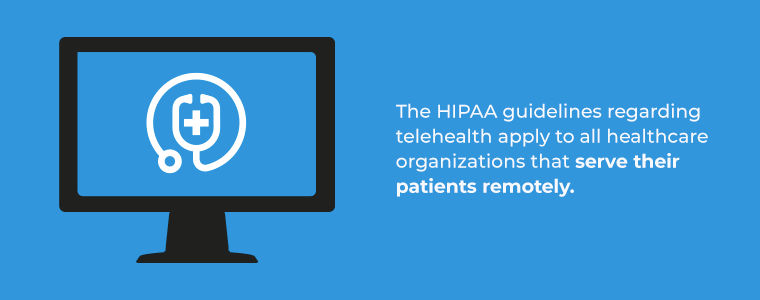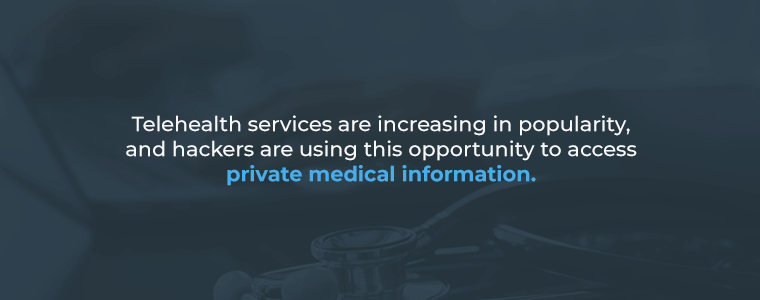How to Hold a Safe, Secure Telehealth Appointment
A telehealth appointment is a doctor’s visit or medical appointment that takes place over the Internet instead of in the office. The doctor and patient use devices with audio-video capabilities to communicate. Telehealth meetings allow patients to get the care they need more easily, and healthcare organizations that offer them can improve their workflows and standards of care while decreasing costs.
If you provide telehealth appointments, it’s essential to make sure they’re compliant with the Health Insurance Portability and Accountability Act (HIPAA).
HIPAA and Telehealth
The Office for Civil Rights (OCR) enforces HIPAA regulations to ensure that protected health information (PHI) stays private and secure. The HIPAA guidelines regarding telehealth apply to all healthcare organizations that serve their patients remotely. In these circumstances, medical professionals still need to follow the regulations for communicating electronically protected health information (e-PHI), and the communication channel must be HIPAA-compliant.

Telehealth is HIPAA-compliant if the healthcare organization follows these guidelines specified in the Security Rule:
- There must be a secure communication system in place to protect e-PHI.
- Only authorized users can access e-PHI.
- There must be a system in place to monitor communications containing e-PHI to prevent breaches.
Some video communication product providers say their products are HIPAA-compliant, and they can enter a business associate agreement (BAA) with healthcare providers to facilitate telehealth services. Your company should not use any unsecured channels to communicate e-PHI. In addition to video conferencing technology, healthcare providers can use secure messaging solutions.
Telehealth Risks
Telehealth services are increasing in popularity, and hackers are using this opportunity to access private medical information. Video conferencing technology can have security flaws that allow penetration, and intruders can steal the health information shared during the appointment. That’s why it’s important to have a plan in place to keep telehealth appointments HIPAA-compliant.

How to Prepare for a Telehealth Visit
Review this telehealth privacy checklist to get ready for your appointments with patients:
- Use a virtual private network (VPN) to encrypt your data.
- Keep your diagnostic devices and video conferencing applications up to date.
- Encourage patients to create complex passwords for your telehealth portal.
- Use a portal that enables multifactor authentication.
- Be aware of phishing scams.
Contact Agio Today
Agio will help your healthcare organization prepare for telehealth visits with HIPAA compliance assessments and technical tests to check for vulnerabilities. Contact us today to learn more.
Share post
Featured Posts
Connect with us.
Need a solution? Want to partner with us? Please complete the fields below to connect with a member of our team.



